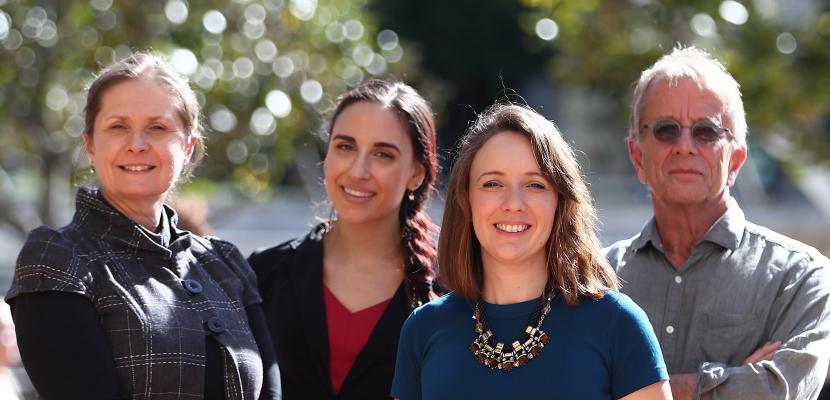
Researchers from Bond University’s Centre for Research in Evidence-Based Practice are on a mission to stop medical misinformation from exploiting the sick and vulnerable.
In an era of ‘fake news’, wellness-promoting celebrities and unprecedented access to information, Bond University medical researcher and founder of popular maternal website Not Just Mum Dr Amanda McCullough will join colleagues to teach workshop participants how to sort fact from fiction when consulting Dr Google.
They will share strategies on how to avoid being tricked by misleading online health claims and products as part of a public workshop during Bond Research Week on the Gold Coast.
“People are often at their most vulnerable when they are sick and that’s why they are so susceptible to misinformation,” said Dr McCullough, who has a PhD in human behaviour and won a national research award last year for showing Australian GPs prescribe almost 6 million antibiotics each year at a rate four to nine times higher than guidelines recommend.
“They can be desperate to find a remedy or cure, particularly when faced with serious conditions like cancer, and both they and their loved ones can get sucked in to what they find online. It has never been easier for people to access health information and while some of it is good, there is plenty that is bad and even downright dangerous.
“Curiosity is the most important tool we have when it comes to visiting Dr Google. A lot of people take things on face value and can be too trusting but when it comes to your health, you not only have to be curious about where such information is coming from but why.”
Dr McCullough said her recent move into the world of blogging and online entrepreneurship had reinforced her concerns about the motivations of some health and wellness ‘ambassadors’.
“I’m now also standing on the other side and I feel quite a responsibility that the information I put out there is valid,” she said.
“I’ve already been approached about writing sponsored posts or hosting advertisements on my site and my answer is no. I find it really concerning when someone with credibility shares something that has no basis in evidence and can even be harmful.
“There is so much misinformation online and I want to ensure that any experiences I share with my community are backed up by evidence that I have sourced.”
Dr McCullough said adding the word ‘evidence’ to an online search was one simple way to source more credible results.
“As an example, the evidence for the effectiveness of many cough medicines is quite poor but adding that one word – evidence – will result in a higher number of quality websites being returned,” she said.
“Once you land on a page, you then need to know what to look for. Who is funding the information? Is it up to date? How do they manage your data and privacy? Is there advertising on the page and if so, what is it for?
“I went to one website that was promoting cough medicines and while the information on the site was relatively neutral, all the advertisements were for cough medicines that may not have stacked up in terms of evidence-based practice.
“There are so many simple things we can do to give us the best chance of not only finding quality information online but ensuring we don’t trust a medicinal product or therapy just because a celebrity shared it.”
Dr McCullough, who won the 2017 Bupa Health Emerging Researcher Award, will join colleagues Dr Paulina Stehlik, Associate Professor Rae Thomas and Professor David Henry at the October 17 workshop.
Titled ‘Evaluating health claims – how to decide if they are legitimate’, it will teach participants skills to quickly and effectively make sense of a claim’s merits, decide if they need more information and where to find it.
The seventh annual Bond Research Week, which runs from October 15-19, will showcase the best of the University’s Business, Law, Health Sciences and Medicine, and Society and Design faculties in a series of thought-provoking lectures, debates, workshops and events that are open to the public and free to attend.
Dr Amanda McCullough’s Top Three Tips
- Add ‘evidence’ to your Google search (ie: cough medicines evidence vs cough medicines)
- When on a website, look for who is paying for it, where the information has come from, how current it is and whether it is reviewed by experts
- When visiting a health professional for a test, treatment or procedure, ask five questions - do I really need this? What are the risks? Are there simpler, safer options? What happens if I do nothing? What are the costs? (source: www.choosingwisely.org.au/resources/consumers/5-questions-to-ask-your-doctor)

